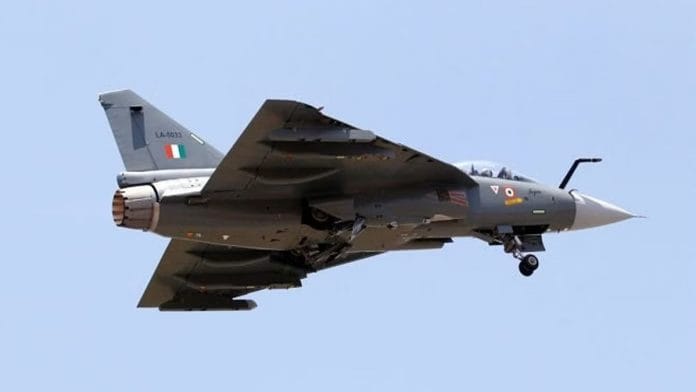New Delhi: American engine maker GE has informed the Indian government that they will start delivery of the critical F404-IN20 engines needed to power India’s indigenous fighter aircraft—Tejas MK 1A—by April 2025.
Government sources said that contrary to the perception that GE was to begin delivery from March, they were contractually obliged to start delivery of the engines from March/April last year.
This, they said, meant that the delivery of the engines had been delayed by two years.
Asked if India would impose the penalty clause for late delivery, the sources said that the contract will be implemented in full. Penalty clause for late delivery is a common clause in all commercial procurement contracts.
“All contract obligations will be met and implemented,” the sources had earlier said when asked if the penalty clause will be exercised.
In a message to journalists, the Ministry of Defence (MoD) Tuesday evening said, “It has been noted that some media organisations have carried a story that India plans to impose penalties on GE for delay in delivery of Tejas engines. Story is factually incorrect as there was no such proposal under consideration. The contract is between HAL & GE.”
Queries on whether penalty has already been imposed by the Defence Ministry through HAL, which is the contracting agency with GE, or whether the contract did not have a penalty clause remained unanswered at the time of publishing.
ThePrint had earlier reported that the penalty clauses as per the contract has been implemented by India. While HAL is the contractual body, it is a state-run entity and comes under the government of India.
Meanwhile, the sources said Prime Minister Narendra Modi and Defence Minister Rajnath Singh flagged the engine delivery delay during their recent visits to the US. GE has promised to start delivering the engines by March/April 2025.
According to the August 2021 contract between GE and Tejas manufacturer Hindustan Aeronautics Limited (HAL), the American firm was to start delivery of 99 engines for the 83 LCA MK 1A last year.
As ThePrint reported, GE’s failure to meet the timeline for delivering engines was one of the main reasons behind the delay in the delivery of the Tejas aircraft.
Meanwhile, government sources said GE’s delay in delivering the engines was not part of any US “pressure tactics”. They said GE has a tie-up with a South Korean firm, and the latter has been facing financial issues and could not deliver certain components.
“We have told GE to provide us with the transfer of technology for the same, and we will make it here,” the source said.
For the Tejas delivery delay, the sources blamed GE’s failure to deliver the engines. “The HAL as of now can deliver about 5-6 aircraft and, by next year, will have a capacity to manufacture 24. But, it all depends on the GE delivering the engines,” the sources said.
Questioned why the IAF has not received a single aircraft yet, the sources defended HAL. They said the weapons integration is recent, and a foreign company delayed the Tejas delivery. Moreover, Israel, caught up in a conflict, failed to integrate the radar in time.
The trials of the aircraft are taking place now and, after their completion, the Tejas delivery will start, the sources said.
The first aircraft of the Tejas Mk 1A series, LA 5033, took to the skies in March this year. The aircraft did not fly with a new engine but with Category B engines—reserve machines used in the past or unused reserve machines from an earlier deal with GE for the Tejas series.
HAL has set up a new production line in Nashik for the LCA Mk1As. It already had a factory in Bengaluru, capable of producing 16 aircraft each year. The public sector defence company can now build 24 aircraft per year.
This is an updated report with inputs from defence ministry & new headline
(Edited by Madhurita Goswami)






